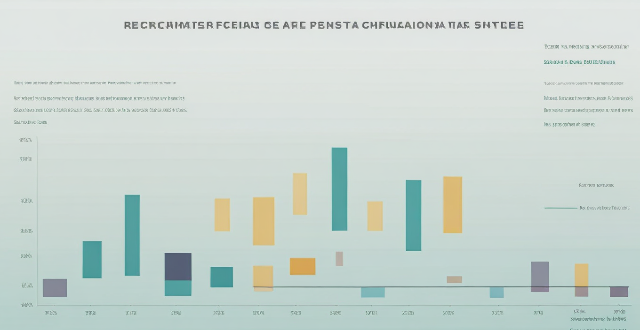Financial Industry

Can blockchain technology revolutionize the financial industry ?
Blockchain technology has the potential to revolutionize the financial industry by introducing a decentralized, transparent, and secure way of conducting transactions. In this article, we will explore how blockchain technology can transform the financial sector and discuss its benefits and challenges. Benefits of Blockchain in Finance: - Decentralization: Elimination of intermediaries and increased efficiency. - Transparency: Immutable records and audit trail for regulatory compliance. - Security: Distributed ledger and cryptography ensure secure transactions. Challenges of Blockchain in Finance: - Regulatory uncertainty: Lack of clear regulations and compliance issues. - Scalability: Limited throughput and ongoing research for scaling solutions. - Interoperability: Integration with legacy systems and lack of standardization. Potential Use Cases for Blockchain in Finance: - Payments and Remittances: Faster and cheaper cross-border transactions. - Trade Finance: Streamlined processes and automated smart contracts. - Securities Settlement: Real-time settlement and fractional ownership of assets. In conclusion, blockchain technology has the potential to revolutionize the financial industry by introducing a decentralized, transparent, and secure way of conducting transactions. While there are challenges to overcome, such as regulatory uncertainty, scalability concerns, and interoperability issues, the benefits of blockchain in finance are undeniable. As the technology continues to evolve and mature, we can expect to see increased adoption and innovation in the financial sector powered by blockchain technology.

What is the role of blockchain in the financial industry ?
Blockchain technology has emerged as a game-changer in the financial industry, offering unprecedented levels of security, transparency, and efficiency. Its decentralized nature and immutable ledger system have paved the way for innovative applications that are reshaping the financial landscape. In this article, we will explore the various roles of blockchain in the financial industry. One of the key advantages of blockchain is its ability to create trust without the need for intermediaries. Traditional financial systems rely on central authorities, such as banks or clearinghouses, to verify and record transactions. With blockchain, transactions are verified by a network of nodes, each of which maintains a copy of the ledger. This decentralized approach eliminates the need for intermediaries, reducing costs and increasing efficiency. Blockchain provides a transparent and auditable ledger of all transactions. Each transaction is recorded on the blockchain in a tamper-resistant manner, ensuring that any attempt to alter the ledger will be immediately apparent. This level of transparency enhances accountability and reduces the risk of fraud or errors. Smart contracts are self-executing contracts with the terms of the agreement between buyer and seller being directly written into lines of code. These contracts can automatically execute transactions when certain conditions are met, eliminating the need for intermediaries and reducing the risk of non-performance or disputes. Smart contracts have the potential to revolutionize many areas of finance, including insurance, real estate, and supply chain management. Distributed ledger technology (DLT) is at the heart of blockchain's capabilities. It allows multiple parties to have access to a shared database that is secure, transparent, and tamper-proof. DLT enables faster settlement times, improved cash management, and reduced operational risks. It also facilitates cross-border payments and remittances, making them more efficient and cost-effective. Tokenization involves representing physical assets, such as stocks, bonds, or real estate, as digital tokens on a blockchain. This process enables fractional ownership, easier transferability, and increased liquidity. Tokenization also allows for programmable assets, where rules can be embedded into the tokens themselves, enabling automated compliance with regulations and contractual obligations. Blockchain can be used to create a secure and decentralized identity verification system. This system would allow individuals to control their own identity information and share it selectively with third parties while maintaining privacy. Such a system could significantly reduce identity fraud and streamline processes that require identity verification, such as opening bank accounts or applying for loans. Blockchain's transparency and immutability make it an ideal tool for regulatory compliance. By using blockchain to record all financial activities, regulators can easily monitor and analyze transactions in real-time, identifying potential violations and enforcing compliance more effectively. This could lead to more efficient regulation and better protection for consumers and investors. In conclusion, blockchain technology has the potential to transform the financial industry by improving efficiency, reducing costs, enhancing security, and promoting transparency. From decentralization and trust to smart contracts and tokenization, blockchain is poised to disrupt traditional financial models and create new opportunities for innovation and growth. As adoption continues to accelerate, we can expect to see even more exciting developments in the years ahead.

What is the impact of financial regulation on innovation in the financial sector ?
Financial regulation plays a critical role in the innovation landscape of the financial sector, with both positive and negative impacts. Positively, it promotes transparency and trust, encourages responsible innovation, and facilitates access to capital. However, it can also slow down the pace of innovation, restrict experimentation, and stifle international competitiveness. To mitigate these negative effects, adaptive regulation, collaborative approaches, and education and training are recommended. Striking a balance between fostering innovation and ensuring safety is crucial.

How do you analyze the performance of a specific industry within the stock market ?
Analyzing the performance of a specific industry within the stock market requires a comprehensive understanding of various factors that can impact the industry's growth and profitability. Key steps to follow include identifying the industry, studying its trends, analyzing the financial performance of key players, evaluating the competitive landscape, considering macroeconomic factors, using financial ratios and metrics, and considering industry-specific factors. By following these steps, you can gain a better understanding of the performance of a specific industry within the stock market and make informed investment decisions based on your analysis.

How does Fintech influence the job market in the finance industry ?
The influence of fintech on the job market in the finance industry has led to the creation of new roles and changes in the skillset required for existing positions. Fintech companies have increased demand for software developers, data scientists, and cybersecurity experts. Additionally, specialized financial roles like fintech startup founders, regulatory compliance officers, and customer experience managers have emerged. Traditional finance roles such as bankers, accountants, and investment advisors now require proficiency in digital tools and an understanding of automation and data analytics. As technology continues to advance, the finance industry workforce will need to adapt continuously to stay relevant in the changing job market.

How can smart contracts be used to streamline financial transactions ?
Smart contracts can streamline financial transactions by automating processes, reducing costs, and increasing efficiency. They can automate payments and transfers, act as escrow services, create loan agreements, streamline insurance claims, and facilitate trading and exchanges of financial assets. As blockchain technology evolves, we can expect more innovative uses for smart contracts in the financial industry.

What is the relationship between financial regulation and financial stability ?
The relationship between financial regulation and financial stability is crucial for the proper functioning of the economy. Financial regulation, consisting of laws and guidelines, aims to ensure the safety and soundness of the financial system and protect consumers. Financial stability, on the other hand, refers to a condition where the financial system can withstand shocks without significant disruptions. Financial regulation affects financial stability in several ways: 1. It prevents financial fraud and misconduct by enforcing strict rules and penalties, maintaining public trust in the financial sector. 2. It promotes transparency and disclosure, allowing stakeholders to make informed decisions and enabling regulators to monitor the financial system effectively. 3. Regulators encourage sound risk management practices, such as capital requirements and stress testing, contributing to overall financial stability. 4. They maintain market integrity by promoting fair competition and preventing monopolistic behavior, ensuring confidence in the financial system. 5. Regulators address systemic risks through macroprudential policies, safeguarding against widespread financial instability. In conclusion, financial regulation plays a vital role in maintaining financial stability by preventing fraud, promoting transparency, encouraging sound risk management, maintaining market integrity, and addressing systemic risks. However, finding the right balance between regulation and innovation is crucial for achieving both regulatory effectiveness and financial stability.

How can governments encourage and improve financial literacy among citizens ?
Governments can encourage financial literacy by implementing education programs, offering accessible financial services, and enforcing consumer protection regulations. This will help citizens make informed decisions about their money, investments, and debts.

How has the sports industry influenced the film industry ?
The sports industry has significantly impacted the film industry in various ways, including inspiring storylines, providing cross-promotion opportunities, fostering collaborations between athletes and filmmakers, and shaping certain film genres.

What are the most prestigious awards in the entertainment industry ?
The entertainment industry has several prestigious awards that recognize outstanding achievements in various fields such as acting, directing, producing, and music. Some of the most notable awards include the Academy Awards (Oscars), Emmy Awards, Grammy Awards, Tony Awards, Golden Globe Awards, BAFTA Awards, Critics' Choice Awards, and MTV Movie & TV Awards. These awards not only honor talented individuals but also set the benchmark for excellence in the industry.

What is the impact of e-sports on the entertainment industry ?
E-sports, also known as electronic sports, have become a significant force in the entertainment industry over the past decade. The growth of e-sports has had a profound impact on various aspects of the entertainment sector, including media consumption, advertising, sponsorships, and even traditional sports. In this article, we will explore the different ways e-sports have influenced the entertainment industry. One of the most noticeable effects of e-sports on the entertainment industry is the increased media consumption. With the rise of streaming platforms like Twitch and YouTube Gaming, more people are watching e-sports events than ever before. This has led to a surge in viewership numbers for major e-sports competitions, with some events drawing audiences that rival those of traditional sports. The popularity of live streaming has played a crucial role in the growth of e-sports. Platforms like Twitch allow fans to watch their favorite players and teams compete in real-time, creating an interactive experience that goes beyond simply watching a game. This has not only increased the overall viewership but also provided opportunities for advertisers and sponsors to reach a highly engaged audience. As e-sports continue to gain momentum, so does the number of content creators who specialize in covering the latest news, highlights, and analysis related to the industry. These creators generate a vast amount of content across various social media platforms, further driving engagement and expanding the reach of e-sports within the entertainment landscape. The booming e-sports industry has attracted numerous advertisers and sponsors looking to tap into its growing fanbase. Brands ranging from energy drinks to computer hardware companies have invested heavily in e-sports, sponsoring tournaments, teams, and individual players. Many high-profile e-sports events now feature prominent sponsorship logos and brand integrations throughout their broadcasts. These partnerships not only provide financial support for the organizations hosting these events but also offer valuable exposure for the sponsoring brands. Top e-sports players and teams have secured lucrative endorsement deals with major brands, similar to those seen in traditional sports. These deals often include personal appearances, social media promotions, and exclusive product collaborations, further blurring the lines between e-sports and mainstream entertainment. E-sports' rapid growth has prompted many traditional sports organizations to take notice and adapt accordingly. Several professional sports leagues, such as the NBA and NFL, have launched their own e-sports initiatives or partnered with existing e-sports organizations to expand their reach among younger audiences. There has been a notable crossover between e-sports professionals and traditional athletes, with some former athletes transitioning into e-sports careers or investing in e-sports teams. Additionally, traditional sports stars have participated in e-sports events or collaborated with e-sports personalities, showcasing the increasing interconnectedness of these two worlds. Recognizing the potential of e-sports, several major sports organizations have made substantial investments in the space. This includes everything from forming dedicated e-sports divisions within their organizations to acquiring stakes in existing e-sports teams or leagues. These moves underscore the belief that e-sports represent a viable long-term investment opportunity within the broader entertainment industry. E-sports' impact on the entertainment industry is undeniable, as it continues to shape how we consume media, engage with brands, and interact with both emerging and established forms of entertainment. As e-sports continue to grow and evolve, they will undoubtedly play an increasingly central role in shaping the future of the global entertainment landscape.

How do financial regulations impact banks and other financial institutions ?
Financial regulations are crucial for maintaining stability in the banking and financial sector. They protect depositors' interests, promote fair competition, prevent financial crises, and impact innovation and efficiency. Regulations like capital adequacy ratios, liquidity coverage ratios, and stress testing ensure depositors' safety. Antitrust laws and consumer protection laws encourage fair competition among banks. Prudential supervision and Basel III help prevent financial crises. However, excessive regulation may negatively affect innovation and profitability. Striking a balance between safety and promoting innovation is key.

Is decentralized finance regulated by governments or financial institutions ?
The regulation of decentralized finance (DeFi) is a complex issue that involves both government and financial institutions. Governments can regulate DeFi indirectly through tax laws and anti-money laundering/know your customer (AML/KYC) laws, while also taking enforcement actions such as investigations, sanctions, and fines. Financial institutions may engage in self-regulation by establishing industry standards and best practices, building bridges with traditional finance, and offering insurance products tailored for DeFi risks. As the DeFi ecosystem continues to grow, it is likely that both government and financial institution regulation will continue to evolve.

How do you use financial ratios to analyze a company's stock ?
Using Financial Ratios to Analyze a Company's Stock Financial ratios are essential for analyzing a company's stock, providing insights into financial health, operational efficiency, and profitability. By calculating and interpreting these ratios, investors can make informed decisions about buying, holding, or selling stock. There are four main types of financial ratios: liquidity, solvency, operating, and profitability. To analyze a company's stock using financial ratios, gather financial data, calculate the relevant ratios, interpret the results, and make investment decisions based on your analysis and other factors.

How has financial regulation evolved over time ?
The evolution of financial regulation has been marked by significant changes in response to economic crises, technological advancements, and shifts in political ideologies. From the laissez-faire approach of early days to the rise of regulatory frameworks during the Great Depression, through the deregulation era of the late 20th century, and the renewed emphasis on regulation following the Global Financial Crisis, financial regulation has adapted to maintain stability and promote growth within the financial sector. The digital age presents new challenges, requiring regulators to adapt existing frameworks to accommodate technological innovations while ensuring consumer protection and systemic stability.

How do financial regulations affect consumers ?
Financial regulations protect consumers from fraud, promoteFinancial regulations protect consumers from fraud, promote credit, outline consumer rights, promote competition, ensure access to credit, outline consumer rights, and contribute to financial stability.

Who are the main financial regulators in the world ?
Financial regulators worldwide play a pivotal role in maintaining the stability and integrity of the global financial system. Key institutions include the SEC, Fed, CFTC, and FINRA in the US; ECB and ESMA in the EU; BoE and FCA in the UK; BoJ and FSA in Japan; and PBOC and CBIRC in China. The Basel Committee on Banking Supervision and IOSCO also set global standards for bank regulation and securities markets, respectively. These regulators collaborate to address cross-border issues and enhance the health and integrity of the global financial system through implementing regulations, monitoring market activities, promoting transparency, and taking action against illegal or unethical practices.

What are the key factors to consider when analyzing the stock market ?
Analyzing the stock market involves considering economic indicators, company financials, industry trends, market sentiment, technical analysis, and risk management. Economic indicators provide insights into the overall health of the economy, while company financials assess the financial health of individual companies. Industry trends help understand the prospects of the industry in which a company operates. Market sentiment can impact stock prices, even if it doesn't necessarily reflect the underlying fundamentals of a company or the economy. Technical analysis involves studying past price patterns to predict future movements. Proper risk management is crucial when investing in the stock market, including diversification, stop-loss orders, position sizing, and evaluating the potential rewards against the risks involved in each trade.

How do climate-related concerns influence consumer choices in the food industry ?
Climate change is a pressing issue that affects various aspects of life, including the food industry. As consumers become more aware of their environmental impact, they are increasingly making choices based on climate-related concerns. This shift in consumer behavior has significant implications for food producers, retailers, and the entire supply chain. Factors influencing consumer choices include environmental sustainability, health considerations, economic factors, ethical concerns, personal values and beliefs. The impact on the food industry includes product development, supply chain management, marketing strategies, retail practices, and policy influence. Businesses that adapt to these changing preferences by embracing sustainability and transparency are likely to gain a competitive edge in the marketplace. It is essential for companies to anticipate and respond to these trends to maintain relevance and profitability while contributing positively to the environment.

What is the role of financial advisors in developing an investment strategy ?
Financial advisors are pivotal in shaping investment strategies by identifying financial goals, assessing risk tolerance, analyzing market conditions, designing portfolio allocation, monitoring and adjusting investments, and providing ongoing advice. They help individuals and businesses achieve their short-term objectives like building an emergency fund and reducing debt, as well as long-term goals such as retirement planning and education funding. By evaluating risk appetite, they tailor investment plans that prioritize capital preservation or pursue growth potential through diversification. Understanding macroeconomic factors and industry trends further informs investment decisions. In portfolio design, they allocate assets across classes and employ diversification to mitigate risks. Through performance tracking and rebalancing, they ensure investments remain aligned with goals. Moreover, financial advisors offer educational and emotional support, enhancing client knowledge and helping them manage risks. Overall, they ensure strategies reflect clients' evolving needs, fostering informed and balanced investment approaches.

What is green building and why is it important for the construction industry ?
Green building is an approach to design, construction, operation, and maintenance of buildings that aims to minimize environmental impact and resource consumption throughout a building's lifecycle. It focuses on sustainability, energy efficiency, water conservation, materials selection, and indoor environmental quality. The importance of green building in the construction industry stems from environmental concerns, economic benefits, and social responsibility. Green buildings reduce carbon footprint, conserve resources, preserve biodiversity, save energy costs, have higher asset values, and promote healthier living conditions. They also set community standards for sustainable practices and help companies stay ahead of compliance requirements. Green building drives innovation in materials science, design techniques, and construction technology. Overall, green building represents a fundamental shift towards more sustainable and responsible practices within the construction industry.

How does financial regulation differ across countries ?
Financial regulation is the process by which governments and other regulatory bodies oversee and control the financial sector. The objective of financial regulation is to ensure the stability of the financial system, protect consumers, promote fair competition, and prevent financial crimes. However, the way financial regulation is implemented varies significantly across countries due to differences in economic structures, legal systems, political ideologies, and cultural values. The legal and institutional framework for financial regulation differs widely among countries. Some countries have a centralized regulatory body that oversees all aspects of the financial sector, while others have multiple regulators responsible for different segments of the market. Capital requirements and risk management practices also vary across countries. In general, developed countries tend to have stricter capital requirements and more sophisticated risk management practices than emerging markets. Consumer protection and disclosure requirements are another area where financial regulation differs across countries. In some countries, such as the United States, there is a strong emphasis on protecting investors from fraudulent activities and ensuring transparency in financial transactions. Taxation policies and anti-money laundering (AML) regulations also play a role in shaping financial regulation across countries. Tax havens, for example, attract foreign investment by offering low tax rates and minimal regulatory oversight, which can lead to concerns about money laundering and tax evasion. Cultural and societal factors can influence financial regulation in various ways. For instance, trust in government institutions and the rule of law tends to be higher in countries with stronger democratic traditions, which may lead to greater acceptance of regulatory interventions. Conversely, countries with weaker institutions or a history of corruption may face challenges in implementing effective financial regulation. Additionally, social preferences regarding income inequality, environmental sustainability, and other issues can shape the priorities of financial regulators in different countries.

Are there any celebrities who have publicly spoken about the importance of having true friends in the entertainment industry ?
The text discusses the importance of having true friends in the entertainment industry, as highlighted by various celebrities. These include Taylor Swift, Amy Schumer, Justin Timberlake, Oprah Winfrey, Kristen Bell, Dwayne Johnson (The Rock), Lady Gaga, Emma Stone, Chris Pratt, and Selena Gomez. They have all spoken about the value of genuine connections and supportive relationships in maintaining their well-being and happiness amidst the challenges and unpredictability of the entertainment industry.

How do fuel vehicles affect the economy, particularly in terms of employment in the oil industry ?
The text discusses the impact of fuel vehicles on employment in the oil industry. It highlights that the industry offers a range of jobs from exploration and extraction to refining, distribution, and sales. However, it also notes challenges such as market volatility, environmental concerns, and technological advances that could affect job stability in the sector. The text concludes by emphasizing the need for strategies that promote economic stability while encouraging sustainable practices and innovation.

How has social media impacted the entertainment industry ?
The text discusses the impact of social media on the entertainment industry. It mentions that social media has increased accessibility to content, changed content creation, made it possible for audiences to interact with creators, become a crucial tool for marketing and promotion, and created new revenue streams. The text concludes that social media has had a profound impact on the industry and will continue to shape its future.

How has the private equity industry evolved over time ?
The private equity (PE) industry has undergone significant changes since its inception, evolving from small and mid-sized business investments to larger companies and more complex transactions. The industry has diversified into various sub-sectors like venture capital and distressed investing, allowing firms to specialize in specific areas. Technological advancements have played a crucial role in shaping the PE industry, improving investment decision-making processes. Regulatory changes have also influenced the evolution of the industry, promoting transparency, fairness, and accountability. Looking ahead, the PE industry is likely to continue evolving as it adapts to changing market conditions, technological advancements, and regulatory environments.

How do regulations affect the growth of the commercial space industry ?
Regulations significantly influence the growth of the commercial space industry by providing a framework for innovation, ensuring safety and security, promoting competition, addressing environmental concerns, and adapting to rapid changes. Effective regulations can facilitate industry growth by reducing uncertainty and lowering barriers to entry, while also protecting public interest through strict safety standards and sustainable practices.

What are the latest trends in the entertainment industry ?
The entertainment industry is constantly evolving, with new trends emerging every year. Some of the latest trends include streaming services, virtual reality and augmented reality technologies, e-sports and live streaming, interactive content, and diversity and inclusion. Streaming services like Netflix and Hulu are becoming more popular as people cut the cord on cable subscriptions. Virtual reality and augmented reality technologies are being explored for use in gaming, movies, concerts, and live events. E-sports has become a major trend with millions of people tuning in to watch professional gamers compete. Interactive content creates a more engaging experience for audiences by allowing them to influence the outcome of a show or movie. Diversity and inclusion are also becoming increasingly important in the entertainment industry as studios and networks work to create more diverse casts and stories that reflect different cultures and perspectives.

How does Fintech impact financial inclusion ?
Fintech has revolutionized financial services, making them more accessible and affordable. It has increased accessibility for unbanked populations, lowered costs, improved efficiency, driven innovation, enhanced security, promoted financial literacy, facilitated inclusion initiatives, enabled digital identity verification, supported microfinance and crowdfunding, and promoted mobile money and payment systems. These advancements have significantly impacted financial inclusion worldwide.

How can I maintain my financial freedom once I achieve it ?
The text discusses strategies for maintaining financial freedom, including creating a budget and sticking to it, building an emergency fund, investing wisely, living below one's means, and continuously learning and growing. It emphasizes the importance of discipline, planning, and effort in sustaining financial independence.